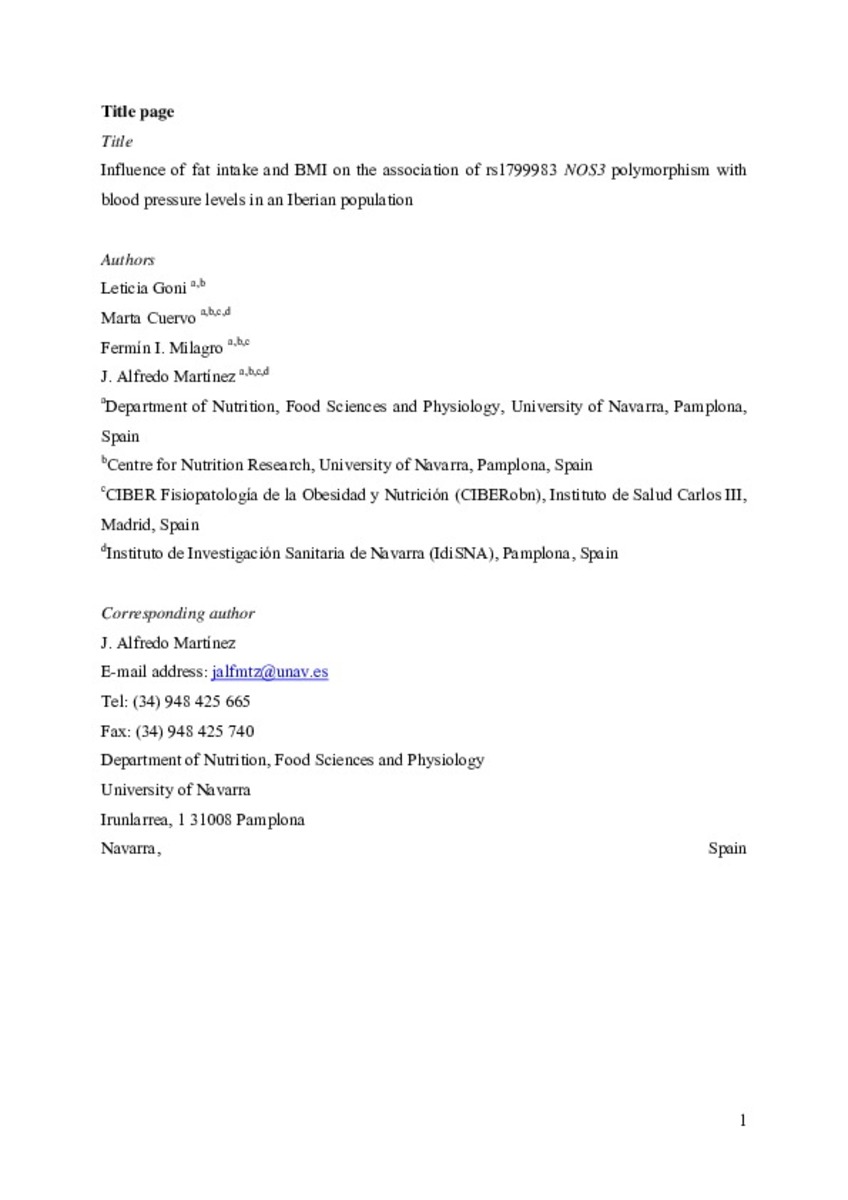Influence of fat intake and BMI on the association of rs1799983 NOS3 polymorphism with blood pressure levels in an Iberian population
Keywords:
Materias Investigacion::Ciencias de la Salud::Endocrinología
Materias Investigacion::Ciencias de la Salud::Nutrición y dietética
Obesity
Monounsaturated fatty acids
Saturated fatty acids
NOS3
Blood pressure
Hypertension
Publisher:
Springer Verlag
Note:
Esta obra está bajo una licencia de Creative Commons Reconocimiento-NoComercial-SinObraDerivada 4.0 Internacional.
Citation:
Goni L, Cuervo M, Milagro FI, Martinez JA. Influence of fat intake and BMI on the association of rs1799983 NOS3 polymorphism with blood pressure levels in an Iberian population. European Journal of Nutrition 2016:1-17.
Statistics and impact
0 citas en

0 citas en

Items in Dadun are protected by copyright, with all rights reserved, unless otherwise indicated.







